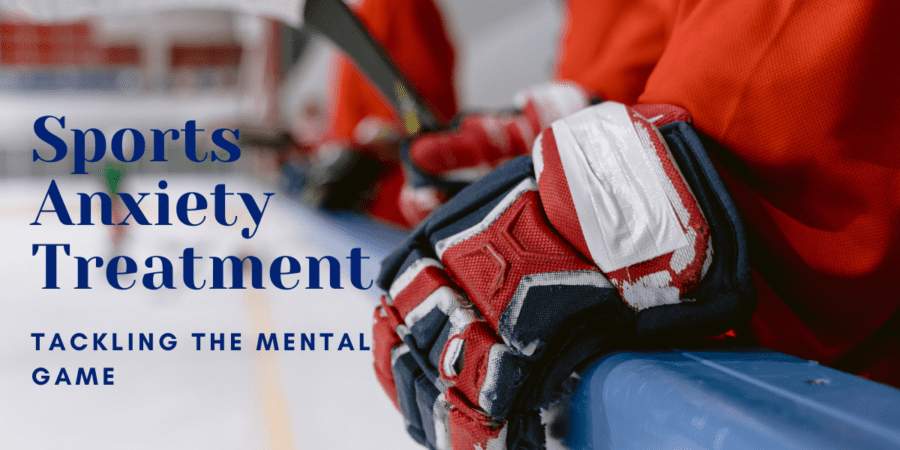Sports Anxiety Treatment: Tackling the Mental Game for Ice Hockey Players
Sports anxiety treatment plays a pivotal role in the performance of young ice hockey players, a fact I’ve come to appreciate deeply as a sports enthusiast and observer of numerous ice hockey games. The mental aspect of the game is critical, with sports anxiety often being a major obstacle to achieving success.
Athletes at every level face the challenge of performance anxiety, but with the right treatments and insights from sports psychologists, they can overcome these mental hurdles and enhance their athletic performance.
This article highlights the importance of mental resilience in ice hockey and provides practical advice on managing sports anxiety treatment in various contexts.
From understanding performance anxiety’s origins to incorporating mindfulness and meditation techniques, it’s essential to address and mitigate anxiety’s adverse effects on athletic performance.
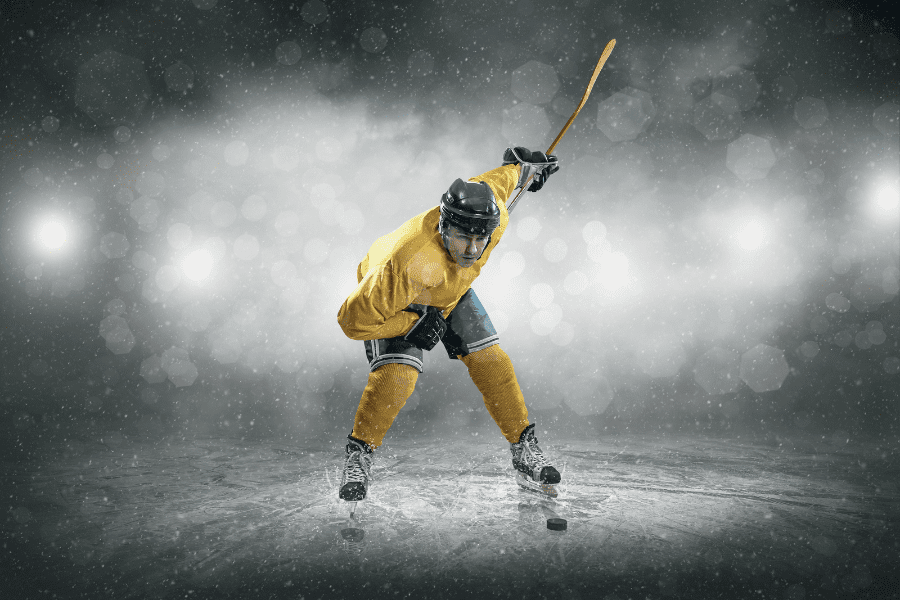
Key Takeaways:
- Performance anxiety can significantly impact ice hockey players’ overall performance.
- Mental health and psychological resilience are crucial for optimal athletic performance.
- Effective treatments, such as Cognitive-Behavioral Therapy (CBT), help in overcoming performance anxiety.
- Mindfulness and Meditation techniques foster present-moment awareness, mitigating the distraction of anxiety over outcomes.
- Acceptance and Commitment Training (ACT) has proven effective in enhancing athletic performance by promoting psychological flexibility.
- Developing pre-competition routines and routines help in building confidence for game day.
- Elite athletes employ various strategies to manage pre-competition jitters, including positive self-talk, visualization, and deep breathing exercises and take advantage of Sports Psychologists interventions frequently.
Understanding Performance Anxiety in Ice Hockey
The intricate relationship between mental health and athletic performance plays a crucial role in the success of ice hockey players. Performance anxiety, or sports anxiety, can significantly impede an athlete’s performance, leaving them vulnerable to the fear of failure and a host of physical and mental symptoms that can hamper their game-day performance.
How Sport Psychologists and CMPCs Boost Performance
In sport and performance psychology, experts use proven methods to help athletes do their best. They think about things like culture that can affect how athletes feel and perform. These experts work with athletes one-on-one or in groups, depending on what the athlete needs. They teach important mental skills to help athletes perform well consistently, like setting goals, staying focused, staying motivated, relaxing, and using imagery.

Many of these professionals get a special certification called Certified Mental Performance Consultant® (CMPC). This shows they have the highest level of training and practice standards. They have to finish certain education and work, pass a big test, promise to follow ethical rules, and keep learning more about their field. The Association for Applied Sport Psychology (AASP) is the main group in North America that gives this certification to qualified people.
CMPCs help athletes, like ice hockey players, by reducing performance anxiety, improving focus and communication, building confidence, and helping them set goals. If you’re an athlete, working with a CMPC can really help you do better in your sport.
The Link Between Mental Health and Athletic Performance
It is essential to acknowledge that a player’s mental health significantly impacts their athletic performance.
Anxiety-induced hindrances, such as muscle tension, increased heart rate, and negative thoughts, can stifle an athlete’s potential.
Consequently, managing anxiety in sports becomes an integral aspect of a player’s preparation, both mentally and physically.
The Signs and Symptoms of Sports Anxiety
Identifying performance anxiety symptoms is the first step towards mitigating its detrimental effects on an athlete’s performance.
Common signs of sports anxiety include nervousness, panic attacks, and the dreaded experience of “choking” under pressure.
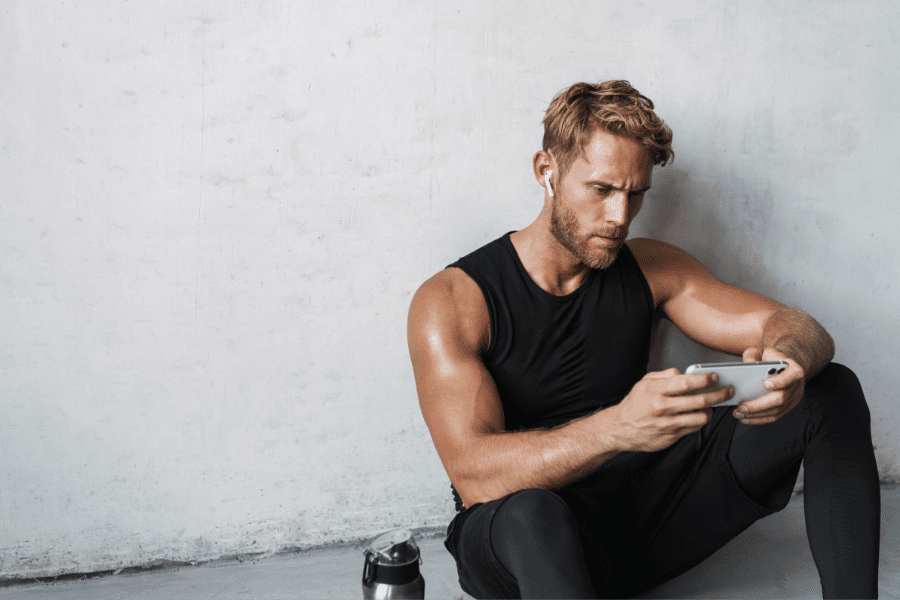
By recognizing these symptoms, athletes can then seek appropriate interventions and therapies to address their anxiety and cultivate resilience.
Exploring the Contrast Between Practice and Game-Day Performances in Athletes
It’s common to observe a significant difference in how athletes perform during practice sessions compared to actual game-day situations.
In a relaxed practice environment, athletes often exhibit a higher level of skill execution and decision-making.
This is largely because these sessions typically lack the high-pressure context of a competitive game-day scenario.
However, on game day, the atmosphere changes dramatically. The presence of an audience, the significance of the event, and personal expectations contribute to an increased state of anxiety.
This heightened stress can negatively impact an athlete’s performance. It affects not only their physical abilities but also impairs critical decision-making skills. The pressure to perform well in front of a crowd and under competitive conditions can lead to a marked decrease in performance compared to what the athlete demonstrates in a more relaxed, practice setting.
Understanding and managing this transition from practice to game day is crucial for athletes to maintain consistency in their performance.
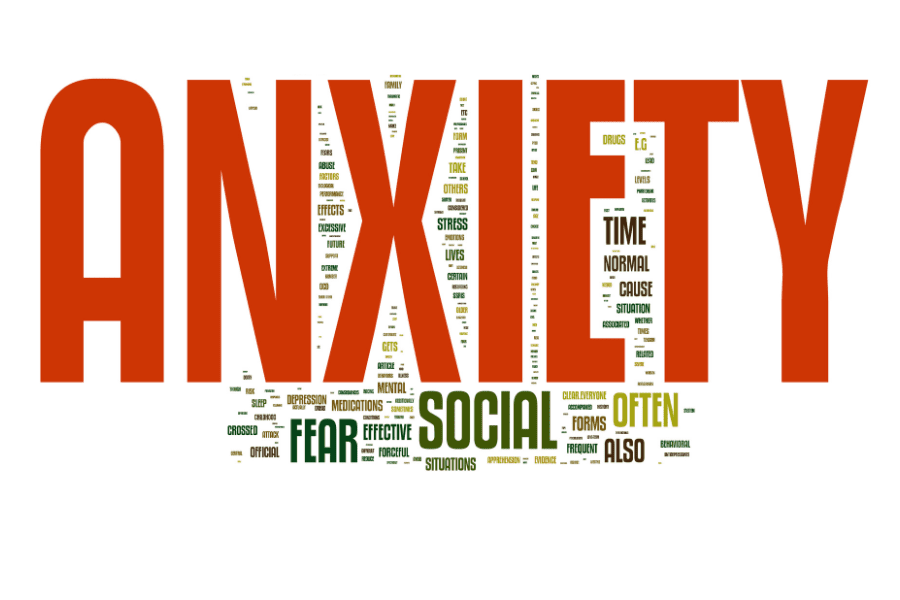
Providing ice hockey players with tools such as Cognitive-Behavioral Therapy and stress management techniques is critical in bridging the gap between their potential and actual game-day performance by decreasing sports anxiety.
In doing so, athletes can conquer their fear of failure and develop the mental fortitude necessary for overcoming performance anxiety on the day of the game, as well as practice.
Breaking Down the Six Steps to Conquer Sports Anxiety
Conquering sports anxiety necessitates a multifaceted approach that can help athletes in overcoming performance anxiety. By undertaking these six steps, athletes can successfully conquer sports anxiety and enhance their performance:
- Rigorous practice to foster preparedness and self-belief.
- Implementing familiar pre-competition routines to bolster comfort and reduce stress levels.
- Mindfully reframing anxiety as a signal of prepared investment, diminishing its negative power.
- Limiting outside interactions before a competition to maintain focus.
- Channeling energy positively through silent contemplation or visualization.
- Matching one’s energy to the enthusiasm required for optimal competition performance.
These six steps, when practiced regularly, can be a game-changer for athletes battling sports performance anxiety.
One effective sports anxiety therapy method is progressive muscle relaxation, which involves progressively tensing and relaxing muscle groups to relieve tension and decrease stress. This technique can be easily integrated into an athlete’s pre-competition routine, helping them relax physically and mentally, and ultimately improving their performance.

Another critical aspect of overcoming sports anxiety is cultivating positive self-talk. Athletes should consciously replace negative thoughts with encouraging and constructive ones, boosting their confidence and self-esteem. Consistent practice of positive self-talk can immensely benefit athletes in managing performance anxiety and achieving their full potential.
These six steps offer a comprehensive approach to alleviating sports anxiety and unlocking an athlete’s true capabilities. By incorporating these strategies consistently, athletes can effectively enhance their mental resilience and achieve peak performance, even under high pressure situations.
Embracing Mindfulness and Meditation Techniques
Incorporating mindfulness and meditation techniques plays an essential role in managing sports anxiety. By focusing on their mental health and harnessing the power of relaxation techniques, athletes can gain control over their performance-related stress, enabling them to succeed under high-pressure situations.
Cultivating Present Moment Awareness
Fostering present moment awareness is crucial for athletes seeking to enhance their performance on the field or ice. This mindful approach allows them to direct their energy and concentration towards the execution of critical skills, thereby diminishing the distractions brought on by anxiety over potential outcomes. As athletes learn to live in the moment, they can make better decisions and react more swiftly to the challenges that arise during intense competition.
Benefits of Breathwork and Focused Attention
Employing breathwork and focused attention strategies not only reinforces an athlete’s sense of mental control but also strengthens their connection with the present moment. These techniques encourage methodical yet instinctive responses during competitions, maximizing an athlete’s ability to perform optimally. Moreover, regular practice of breathwork and meditation bolsters athlete mental health and imbues them with heightened discipline and awareness, indispensable components for overcoming the hurdles posed by performance anxiety.
Specific Aniety Modalties and Therapeutic Interventions:
The Role of Acceptance and Commitment Training

In recent years, Acceptance and Commitment Training (ACT) has emerged as a potent sports anxiety treatment, focusing on the development of psychological flexibility in athletes through acceptance, mindfulness, and adherence to personal values. As a sports enthusiast, I’ve seen firsthand how this approach has made a significant impact on various athletes, including junior elite ice hockey players.
Evidence from randomized controlled trials indicates ACT’s efficacy in improving both subjective and objective performance outcomes among ice hockey players. By embracing their internal experiences without defense, athletes can facilitate effective action in alignment with their goals, ultimately allowing them to perform at their best.
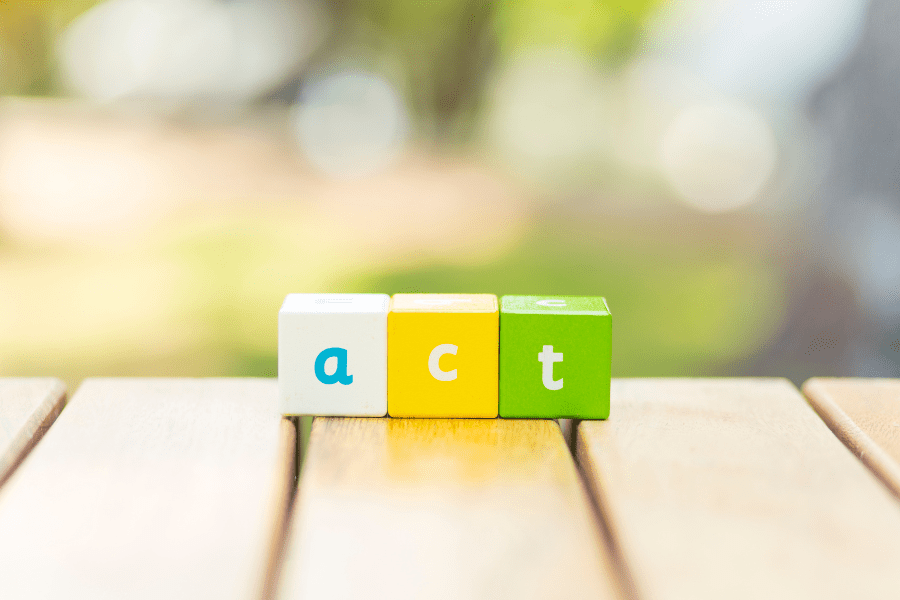
Athletes who incorporate ACT into their sports psychology experience enhanced psychological flexibility and show greater resilience in high-pressure situations. -citation-
Contextual Behavioral Change, a central component of ACT, underscores the substantial role psychological skills training contributes to elite sports performance. By combining sports anxiety counseling and ACT techniques, athletes can tackle the mental challenges they face on the ice and reach their full potential.
- Identify unhelpful thoughts and feelings.
- Accept these thoughts and feelings without judgment.
- Develop mindfulness practices to stay present during performance.
- Clarify personal values and establish goals aligned with them.
- Commit to taking action in service of these values and goals.
- Continuously evaluate and adjust strategies as needed.
Recent research in sports psychology, specifically by (Lungdren et al.) in Frontiers in Psychology has been focusing on mindfulness and acceptance-based methods, like Acceptance and Commitment Training (ACT), to enhance athletes’ performance.
In a study with 34 junior elite ice hockey players, they were either put in an ACT group or a waitlist control group. The results were impressive: the ACT group showed significant improvements in goals, assists, shots, and coach ratings of their performance, focus, and commitment. These improvements were noticeable even three months later, according to the coaches. All the players who received ACT training recommended it to others and believed it was important for their development as hockey players.
The study highlights how ACT, which teaches athletes to accept and be mindful of their thoughts and feelings rather than trying to change them, can positively impact their performance.
It’s different from traditional psychological skills training that focuses more on cognitive techniques like imagery and positive thinking.
The success of ACT in this study suggests it could be a valuable tool for sports teams, especially for sports like ice hockey where mental skills are crucial.
However, the study also points out that more research is needed to understand how to maintain these positive effects over time and to explore whether the training is just as effective in different sports and for different levels of athletes.
Reframing Anxiety with Cognitive Behavioral Therapy
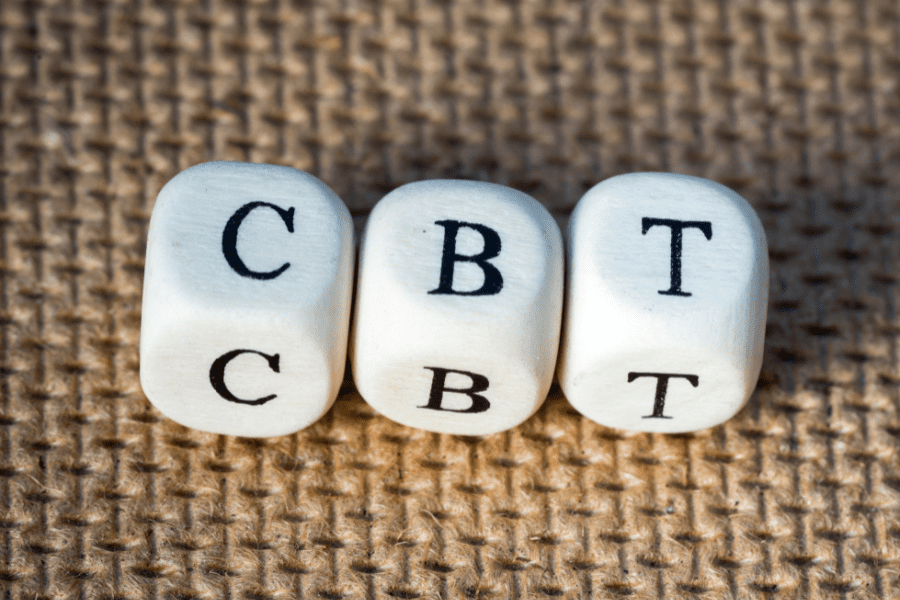
In the realm of sports, reframing anxiety is a potent technique for enhancing performance via Cogntive Behavioral Therapy (CBT). This powerful strategy revolves around altering negative perceptions and thoughts and adopting a positive, can-do mindset, enabling athletes to overcome obstacles brought on by anxiety.
Cognitive Behavioral Therapy (CBT) is a type of psychotherapy that aims to modify negatively charged emotions, behaviors, and thoughts by addressing and changing irrational beliefs.
It’s a solution-focused approach to talk therapy, based on the understanding that our thoughts and perceptions directly influence our behavior.
The process involves identifying harmful thoughts, evaluating their accuracy, and then using strategies to challenge and overcome these thoughts.
This approach is effective for individuals of all ages, including children, adolescents, and adults, and has been used to treat a variety of conditions like major depressive disorder, anxiety disorders, post-traumatic stress disorder, eating disorders, and obsessive-compulsive disorders.
In practice, CBT concentrates on current emotions and situations rather than dwelling on past events.
It encourages individuals to understand and change the narratives they tell themselves that may lead to anxiety or disturbance.
By focusing on the present, CBT helps individuals address their concerns logically and challenge irrational thoughts or excessive worrying.
For example, a person distressed about being single is taught to question negative assumptions (“I will nver be able to score a goal”) and encouraged to take practical steps towards addressing the beliefs, feelings, and behaviors that can break and reframe such negative thoughts.
For children and teens in sports, CBT can be particularly beneficial in managing performance anxiety, improving focus, and developing a healthier, more positive outlook towards their athletic endeavors.
By reframing negative thoughts and adopting coping strategies, athletes can build resilience in high-pressure situations and leverage their emotions for better performance. To find Certified CBT Counselors look to the following link: Beck Institute for Cognitive Behavioral Therapy. Dr. Aaron T. Beck is known as the father of Cognitive Behavioral Therapy. His Institute has provided thousands with this life changing application of therapy.
Imperative Preparation and Routine: Building Confidence for Game Day
Confidence building for game day requires a delicate balance between mental and physical preparation.
Both aspects of your training should work together to ensure you’re ready to perform at your best when the time comes.
In this section, we’ll discuss the importance of developing pre-competition rituals, as well as the key differences between physical conditioning and mental preparation.
Developing Pre-Competition Rituals
Establishing a pre-competition routine is an essential part of game day preparation. By developing rituals that you consistently practice before each competition, you enhance predictability and instill a sense of security within yourself.
These routines can range from certain warm-up exercises to visualization techniques or even specific pre-game meals. The objective of these rituals is to prime your body and mind for optimal performance, regardless of the challenges that may arise during the competition.
Physical Conditioning Versus Mental Preparation
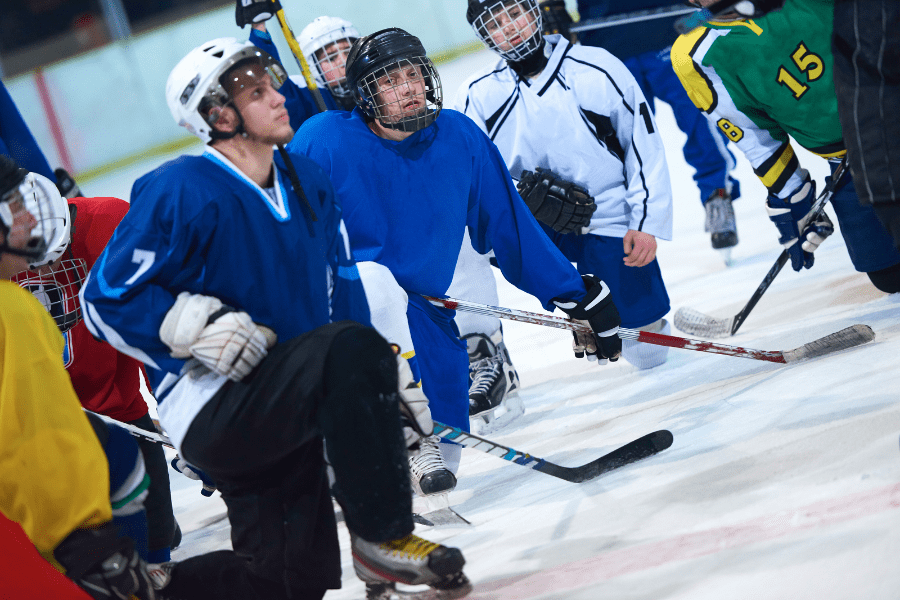
While physical conditioning is crucial for developing the strength, stamina, and skills necessary for success in your sport, it is equally important to focus on mental skills training.
Mental preparation involves various techniques like goal setting, positive self-talk, and learning to cope with pressure. By regularly practicing and incorporating these mental skills into your routine, you can fortify your psychological readiness and boost your confidence on game day.
The coalescence of pre-competition rituals with mental skills training equips athletes to thrive under the spotlight of competitive pressure.
To achieve optimal performance, it’s vital to strike the right balance between physical conditioning and mental preparation. Ensuring that both aspects are given equal attention will ultimately empower you to tackle high-pressure situations and consistently perform at your best.
- Identify your pre-competition rituals and make them a consistent part of your routine.
- Recognize the importance of mental skills training in addition to physical conditioning.
- Continually work to refine and improve your mental preparation techniques for game day success.
In conclusion, confidence building for game day involves a harmony of both physical and mental aspects. Developing pre-competition rituals and prioritizing mental skills training will ensure that you are fully prepared to face the challenges that come with high-stakes competition and achieve optimal performance.
Navigating Social and Competitive Anxiety in Athletics
Athletes often encounter both social anxiety disorder and competitive anxiety in their pursuits. External pressures, including fear of public judgment and elevated expectations, can exacerbate stress levels, particularly in individual sports or “away” venues.
Through my experience, I’ve seen young athletes and those inexperienced in competitive sports struggle more prominently with these anxieties, which can negatively affect their performance and enjoyment of the sport.
One essential aspect of addressing these challenges is providing a supportive social environment.
This can involve encouraging camaraderie among teammates, offering constructive feedback, and fostering a sense of belonging within the team.
Interactions with coaches, mentors, and sports psychologists can also enable athletes to build their confidence and resilience against both social and competitive pressures.
“The best way to gain self-confidence is to do what you’re afraid to do.” – Swati Sharma
Moreover, integrating techniques that equip athletes to navigate stressors can prove invaluable. These may include:
- Learning relaxation techniques such as deep breathing exercises and progressive muscle relaxation to control physiological responses to anxiety.
- Employing Cognitive-Behavioral strategies (see more below) to identify and challenge distorted thoughts and beliefs that contribute to anxiety in social situations and competitive events.
- Adopting visualization exercises to mentally rehearse successful performance and positive interactions with others in various sports settings, building mental resilience.
Overcoming difficulties associated with social anxiety disorder and competitive stress in sports requires a combination of support, education, and self-awareness. Addressing these multifaceted challenges can ensure a higher caliber of athletic performance and profound personal growth for athletes at all levels.
Transforming Negative Thoughts into Positive Outcomes
Fostering the ability to transform detrimental self-talk into affirmative narratives empowers athletes to transcend limitations resulting from negative thoughts and anxiety.
By consciously altering their inner dialogue, they can use anxiety to fuel their motivation and drive to succeed.
A sense of accomplishment subsequently emerges, paving the way for consistently optimistic future performances.
Building Resilience in High-Pressure Situations
Resilience in high-pressure situations is cultivated through a reorientation of psychological responses to arousal states.
Instead of perceiving anxiety, athletes can learn to view such states as excitement which can be channeled towards achieving positive outcomes.
Developing coping strategies and consistently practicing emotional management enables athletes to harness anxiety effectively, ultimately converting it into propellant for successful performances.
How Elite Athletes Handle Pre-competition Jitters
Despite their extraordinary skills and prowess, elite athletes are not immune to experiencing pre-competition jitters.
However, they have honed some of the above techniques and mental strategies to manage stress, boost self-confidence, and ultimately transform performance anxiety into performance-enhancing excitement. L
et’s explore the importance of self-confidence, the power of self-talk, and the essential stress management techniques employed by top performers to maintain mental fortitude and achieve peak performance levels.
The Importance of Self-Confidence and Self-Talk
Top athletes understand that self-confidence is a critical determinant of their ability to handle anxiety and elevate their performance.
Through rigorous preparation and positive self-talk, elite athletes build a strong foundation of self-assurance, which empowers them to face competitive challenges head-on, replacing debilitating fears with a sense of poise and assertiveness.
Quick Strategies Used by Top Performers to Manage Stress
When it comes to managing stress, elite athletes deploy various methods that are both practical and effective. Some of the most widely-utilized techniques include:
- Visualization: The practice of mentally rehearsing successful performance scenarios boosts athletes’ confidence and prepares them for different competitive situations.
- Deep Breathing Exercises: Focusing on slow, deep breaths helps to calm nerves, regulate heart rate, and alleviate performance anxiety when executed just before a competition.
- Goal-oriented Actions: Concentrating on achievable, short-term goals, instead of fixating on final outcomes, enables athletes to break down larger tasks into smaller, more manageable segments, thereby reducing anxiety and incrementally building momentum.
The mental fortitude and application of stress management techniques characteristic of elite athletes allow them to maintain composure and exploit the adrenaline rush inherent in competition to their advantage.
Conclusion
Overcoming performance anxiety is a multifaceted endeavor that not only benefits athletes in their respective sports but also the general population facing everyday challenges.
This journey to assured performance combines the finesse of psychological interventions, like mental training and sports anxiety therapy, with the discipline of athletic training.
Key tactics include practicing progressive muscle relaxation and sharpening public speaking skills for better self-expression in anxiety-inducing situations.
Treatments for sports anxiety are as diverse as the athletes who require them, ranging from mental exercises to professional help.
These interventions equip individuals with the necessary tools to overcome performance anxiety in any athletic event or high-pressure situation. Integrating these strategies fosters resilience and emotional strength that extend beyond the sporting arena, enabling lasting positive change in one’s personal and professional life.
In summary, cultivating psychological flexibility, mindfulness, and acceptance, all while developing and implementing personal pre-competition routines, can help athletes conquer performance anxiety.
By embracing these techniques, athletes and the general population alike can master the skill of managing anxiety, propelling them towards success and accomplishing their goals.
FAQ
What are the common signs of sports anxiety in ice hockey players?
Signs of sports anxiety include both physical symptoms like muscle tension and increased heart rate, and mental symptoms such as negative thoughts, nervousness, and fear of failure. Recognizing these symptoms can help athletes take the necessary steps to address and mitigate the negative impact of anxiety on their performance.
What are some effective strategies to conquer sports anxiety?
Athletes can use a combination of six steps to conquer sports anxiety, such as rigorous practice, maintaining pre-competition routines, reshaping anxiety as a positive force, minimizing external interactions, channeling energy positively through silent contemplation or visualization, and gradually building competition excitement for optimal performance.
How can mindfulness and meditation help ice hockey athletes?
Mindfulness and meditation techniques, including breathwork and focused attention, help athletes cultivate present-moment awareness, reduce distractions, and enhance their sense of control during competition. These practices ultimately allow athletes to better manage stress and respond with greater focus and mental discipline in high-pressure situations.
What are Acceptance and Commitment Training (ACT) and CBT, and how can it help ice hockey players?
ACT is a sports anxiety treatment method that focuses on developing psychological flexibility in athletes by promoting acceptance, mindfulness, and adherence to personal values. Studies have shown its effectiveness in improving both subjective and objective performance outcomes among ice hockey players.
ACT helps athletes embrace their internal experiences without defense, ultimately fostering effective action in alignment with their goals.
Cognitive Behavioral Therapy (CBT) assists with logically attacking irrational thoughts that fuel sports anxiety.
Can pre-competition rituals help build confidence for game-day performance?
Yes, developing pre-competition rituals can bolster an athlete’s comfort and predictability, helping them feel more secure and focused.
These routines, combined with regular mental skills training, can fortify an athlete’s psychological readiness and enhance their ability to perform under competitive pressure.
What role does social support play in managing anxiety for young athletes?
Social support is crucial for managing anxiety in young and inexperienced athletes, as it can help them navigate external pressures like fear of public judgment and elevated expectations.
A supportive social environment, alongside targeted stress management techniques, can foster mental resilience and stronger coping mechanisms, leading to better overall athletic performance.
What strategies do elite athletes use to handle pre-competition jitters?
Elite athletes often employ strategies such as positive self-talk, visualization, and deep breathing exercises to manage pre-competition jitters. They also employ reframing when anxiety creeps in.
These methods help them maintain composure, exploit adrenaline rushes to their advantage, and achieve peak performance levels during competition.
Source Links
- Lundgren T, Reinebo G, Fröjmark MJ, Jäder E, Näslund M, Svartvadet P, Samuelsson U, Parling T. Acceptance and Commitment Training for Ice Hockey Players: A Randomized Controlled Trial. Front Psychol. 2021 Jul 22;12:685260. doi: 10.3389/fpsyg.2021.685260. PMID: 34367007; PMCID: PMC8339210.
- https://www.verywellmind.com/how-do-i-handle-performance-anxiety-as-an-athlete-3024337

